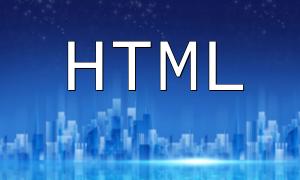In the modern tech world, PHP frameworks have become increasingly important in development. Whether building small websites or large enterprise applications, using frameworks can significantly improve development efficiency, reduce costs, and enhance code quality. This article will explore the many advantages of PHP frameworks.
One of the key advantages of PHP frameworks is their ability to drastically improve development efficiency. By providing pre-built modules and components, developers can integrate required features quickly without starting from scratch.
Most PHP frameworks adopt a modular design. This structure allows developers to organize code into functional modules, making collaboration and maintenance easier. For example, frameworks like Laravel and Symfony offer rich component libraries, enabling developers to select and use only what is needed, thus significantly shortening development cycles.
PHP frameworks often come with many useful built-in tools, such as ORM (Object-Relational Mapping), routing management, form handling, etc. Developers can use these features directly, reducing repetitive tasks and enabling them to focus more on implementing business logic.
PHP frameworks contribute to higher code quality, especially in terms of consistency and readability.
Many PHP frameworks follow established design patterns, such as the MVC (Model-View-Controller) pattern. This structure makes code more organized and easier to understand and maintain. For example, Laravel uses Eloquent ORM for its data layer, simplifying and clarifying data operations.
// Laravel Eloquent ORM example
$user = User::where('email', '[email protected]')->first();
Most modern PHP frameworks provide strong support for unit testing. The built-in testing framework makes it easy for developers to write automated tests, ensuring code stability and reliability.
use PHPUnit\Framework\TestCase;
class UserTest extends TestCase {
public function testUserCreation() {
$user = new User('[email protected]');
$this->assertNotNull($user->getId());
}
}
Maintenance is a crucial factor in the development process. Compared to traditional PHP development, using frameworks makes project maintenance more efficient.
PHP frameworks typically require developers to follow specific coding standards, improving the consistency and readability of the code. This makes it easier for team members to understand each other's work and reduces communication overhead.
Mature PHP frameworks generally have active communities and rich documentation. When developers encounter issues, they can quickly find solutions, improving learning and development speed while ensuring timely project maintenance and updates.
PHP frameworks offer significant flexibility and scalability, making them suitable for projects of all sizes.
Many PHP frameworks support plugin systems, allowing developers to extend the framework's capabilities as needed. For example, WordPress, a PHP-based framework, has a very rich plugin ecosystem that lets users easily add features like payment gateways, SEO optimization, and more.
Most PHP frameworks support multiple platforms and environments, allowing developers to deploy their projects on various systems, whether locally or on the cloud. This feature provides flexibility for project migration and deployment.
In conclusion, PHP frameworks offer many advantages in development tasks, including improved development efficiency, enhanced code quality, easier maintenance, and strong flexibility and scalability. As technology continues to evolve, choosing the right PHP framework can greatly optimize the development process, allowing developers to focus on innovation and business logic. Whether you're a beginner or an experienced developer, using a PHP framework is an effective strategy for increasing project success rates.









